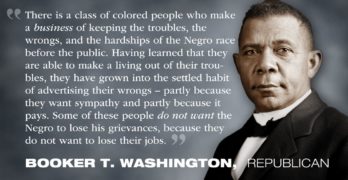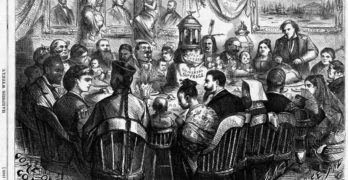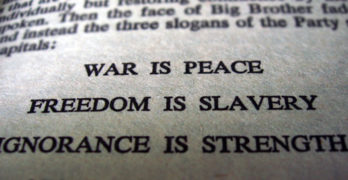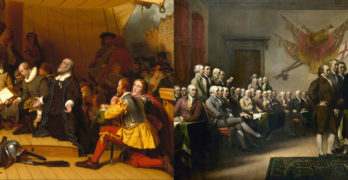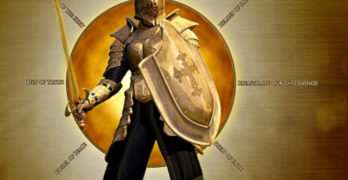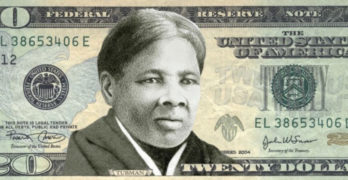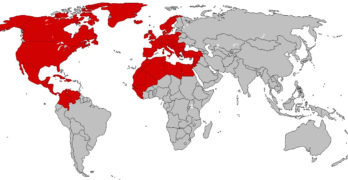 I am sure that you remember that Jesus once said about little children “of such is the Kingdom of Heaven.” One of the things he meant was that just as small children believe and trust everything that their parents tell them, so Christians (those who belong to the Kingdom of Heaven) believe and trust their Heavenly King. Of course, a child may be deceived or mislead by his parents but Christians are always safe when they trust their all-wise, all-good Heavenly Father.
I am sure that you remember that Jesus once said about little children “of such is the Kingdom of Heaven.” One of the things he meant was that just as small children believe and trust everything that their parents tell them, so Christians (those who belong to the Kingdom of Heaven) believe and trust their Heavenly King. Of course, a child may be deceived or mislead by his parents but Christians are always safe when they trust their all-wise, all-good Heavenly Father.
But children do not stay like this do they? They become adults who no longer need to refer to their parents for information and advice all the time (although, of course, wise adults still do this – sometimes frequently). Children lose the trusting attitude that Jesus was talking about. This does not happen over-night. No one goes to bed a child and wakes up an adult in the morning!
Not that long ago (1939-1945 is not really long ago in the history of the world) there was a terrible war. As in all wars, children suffered as well as adults. In this country and in America some children lost their fathers in battle and in this country some lost their homes as a result of enemy bombing and some lost their lives for the same reason.
All children in Britain suffered some disruption, many were evacuated (moved to safe areas away from their homes and parents), some had a very interrupted education, all felt the effects of rationing (food was very plain and there was only just enough) there were no almost toys in the shops and new clothes were rationed.
When the war ended, families which had been separated because the father was in the armed forces were reunited. Young men returned from the forces and got married. For all these reasons lots of new babies arrived. So many, in fact, that this is often referred to as the “baby boom”!
The parents of these new babies had usually grown up during the war. They felt that their childhood had been spoilt by the war, no toys, no sweets, rationing etc. They were glad their own children would have a much better childhood and they set to work to provide them with as many good things as they could.
Time went on and the baby boom children began to get older. They had more pocket money than their parents had ever had and there were now all sorts of lovely things that they could buy. They had what is called “disposable income.”
Disposable income is money which people have that they can spend as they please. You know that your father earns a wage or salary. Of course, he cannot just go out and spend it on whatever he likes. He has to pay the cost of buying or renting a home, he has to pay central and local government taxes; he has to pay for electricity, gas, water, and other services as well as food, clothes and so on. He also has to put some money aside for emergencies and provide some money for a pension for when he is too old to work.
When all these expenses have been met there might be some money left over. Your father has to work very hard for his money and you may be sure that if he has any disposable income he does not spend it without taking thought. The “baby-boom” children, however, had not earned any money yet. They were given (relatively speaking) lots of pocket money and they were eager to spend it.
At the same time, clever manufacturers began to notice that there was quite a bit of money in the hands of youngsters. They also realised that it was a lot easier to get inexperienced young people to part with money than it was to get it from experienced adults. Young children were more controlled by their parents in what money they spent but young people from about the age of thirteen could be easily lured into spending.
The Bible explains that young people are especially vulnerable. They can be tempted by flashy lifestyles and pleasures. Those who devised the culture soon discovered that selling recordings of “pop groups” to this age group was a very successful way to make money.
The “groups” who produced the music for these records did not have to have any particular musical talent. Instead they relied on outrageous hair styles, clothes and manners. The words of the songs were specially designed to appeal to the sins which most tempt young people, especially rebellion against parents in particular and authority in general. Of course, the singers who urged these sinful attitudes were young themselves.
Like Rehoboam in the Bible, young people were urged to listen to the advice of those of their own age, not to old fashioned counsellors such as their parents. A driving, pulsating beat was the characteristic of the music and it was used because this fills the mind and carries the listener along without any effort on his part.
Fashion in clothes was also used. Fashions began to change quickly and a culture developed in which if young people did not have exactly the right up to date clothes they felt uncomfortable and “out of things”.
This is the background against which the use of the word “teenager” became current in Britain. Originating in the USA (“Teenage” ‒ the adjective ‒ first appeared in in a Canadian publication as early as 1921.) it was in the 1940s that the noun “teen-ager” appeared.
It exactly suited the post war pop-culture-mongers. Children longed to become teenagers. Teenagers had their own style of fashionable clothes, their own special music and it was all sold to them by people who recognised an easy way to make money out of gently leading children into sin.
And sure enough, hard on the heels of pop culture came the use of harmful addictive drugs (often associated with and subtly promoted by the pop songs) which gave the users strange experiences. A generation of “teenagers” grew up, who had been taught to be selfish, who were over-indulged and who were used to having their own way. It would take too long to go into details of all the misery which followed.
The pop groups promoted the idea that normal family life was old fashioned (old fashioned – “square” they used to call it – was the worst thing you could be in this culture) burdensome and unpleasant.
Young people should be free to “love” each other without restrictions such as marriage they said. So sin upon sin was urged on these “teenagers” until the generation whose parents had fondly imagined was going to be so much happier than their own war-torn generation was sunk in sin and misery.
Money is still being made out of “teenagers” in this way. What should be a Christian response to all this? Christians old and young should strive to have a child-like spirit.
Christian young people should be very sensitive to the need to obey parents, be modest in dress, and careful to maintain masculine feminine distinctions in dress and behaviour as well as being neat and tidy and not indulging in day dreaming about boy-girl relationships until they are of an age and in a position to consider marriage.
This is especially the case when you are moving into those years of your life which the world (for its own commercial reasons) calls “teenage” and which the Bible warns about as a serious danger-spot for the unwary.
The Bible has much to say about those whom the world calls “teenagers”. It does not use the word, of course because in had not been invented in 1611 when the English translation of the Bible was made.
In Psalm 25 v.7 the Psalmist looks back on his “teenage” years. How he regrets his “teenage” behaviour and longs for God’s forgiveness! In Ecclesiastes 11 v.9 to 12 v. 1 the preacher (wise King Solomon) gives a serious reminder that we will be held to account for our “teenage” behaviour. The world often speaks as if “teenage” folly and sin will be left behind when we grow out if it and that we will not suffer the consequences. Alas, this is not so.
There are eternal consequences for unrepented sin and also consequences in this life that we do not dream of at the time. The world is full of smashed and broken lives – lives that were lured into “teenage” sin years ago.
The Apostle Paul is even more blunt and pleads with us to “flee youthful (we might say “teenage”) lusts.” Teenagers are very vulnerable to lust and ultimately it is lust that is commercially exploited by the pop music industry, the fashion industry, and the television and film industry – much of which is directly aimed at “teenagers.”
We cannot flee without prayerful determination not to be involved in fashion and music which deliberately promotes an ungodly lifestyle for commercial gain.
Find and read:
Psalm 25 v. 7
Ecclesiastes 11 v. 9 to 12 v.1.
2 Tim. 2 v. 22.
Read the story of Rehoboam in 1 Kings 12 vv. 1 – 16.
Copyright 2017, Unknown Author











